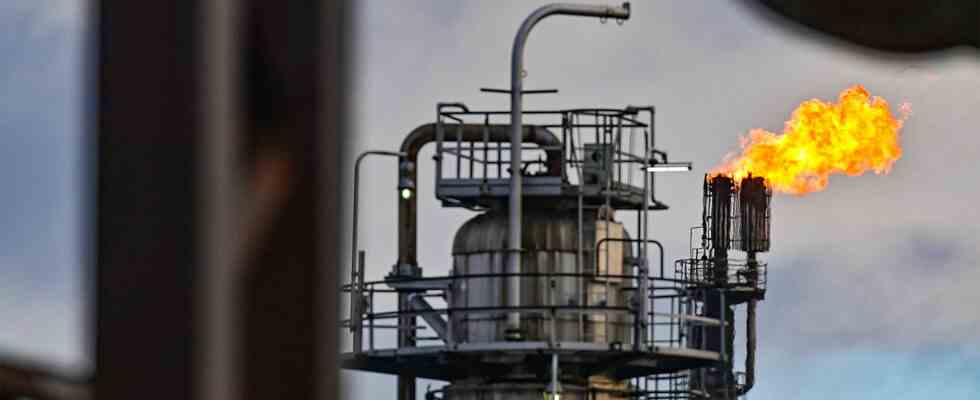comment
As of: 05/04/2022 3:57 p.m
An EU oil boycott is intended to weaken Russia – but this plan contains several flaws. Possibly President Putin would even make money from it and ultimately turn off the gas supply to Europe.
The European Union means well. She is morally on the right side, she supports the small, more or less peaceful Ukraine against the big aggressor Russia and its ruler Vladimir Putin. And the EU is doing a balancing act because it doesn’t want to become a party to the war itself, because that would be the end. So you fight economically.
Some call it an “economic war,” but words aren’t the issue here. However, the principle that drives wars on and on also applies to actions that are intended to hit the opponent economically. Violence breeds counter-violence, and sanctions breed counter-sanctions.
So now the EU wants to launch its sixth package of sanctions against Russia – and this time it’s also about an important fossil fuel, Russian oil. By the end of the year at the latest, they no longer want that in Europe. And they want to massively weaken Russia, because – so the assumption and the hope at the same time – Putin would then really have to run out of money. And he can no longer finance his campaign against Ukraine. Then the war will finally end and the world will be rearranged.
Several misconceptions
That is Europe’s good intention, and it deserves every honor. But unfortunately there are several misconceptions and also implementation errors. First, there is the erroneous assumption that Putin will be really impressed or will find himself in such serious economic difficulties that he cannot or will not continue the war.
Even now, the mere announcement of this oil boycott in installments – because that’s what it will be – is driving up oil prices on the world market. That’s why Russia’s rulers should already be staring at the dollar, pardon me, the ruble sign; and in the past few weeks he has made a lot of money from oil and its price explosion.
And if the Europeans don’t want his oil anymore, or at least don’t really want it anymore, then he exports it to China or India – or to Slovakia or Hungary, those EU countries that don’t take part at first. So much – by the way – for the great European unity …
Does the embargo fizzle out?
Putin will get other buyers, he will find them. Perhaps he will reward them with friendly discounts, in any case: he will continue to make money from it, maybe even more than before – and Europe’s wonderful oil embargo will fizzle out.
That is by no means improbable, not least because this Europe is doing everything it can to ensure that its citizens can continue to happily burn oil despite the embargo. Preferably in their cars. Gasoline must remain affordable, so: price brakes, price caps, price subsidies – free travel for free citizens, whatever the cost – in the end the effect of one’s own embargo would be welcome.
Nightmare scenario: gas tap closed
And then? Then Putin might pull out his economically most powerful weapon as a counter-reaction: he turns off the gas supply to the Europeans. He has already done that in the case of Poland and Bulgaria. A little harbinger of what might be to come. In Brussels they speak of a nightmare scenario. There is little to add. How was that? The opposite of good is good intentions. I agree.
Editorial note
Comments always reflect the opinion of the respective author and not that of the editors.
Comment: A well-intentioned embargo – the EU no longer wants to buy oil from Russia
Holger Beckmann, ARD Brussels, 4.5.2022 3:10 p.m

